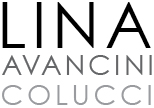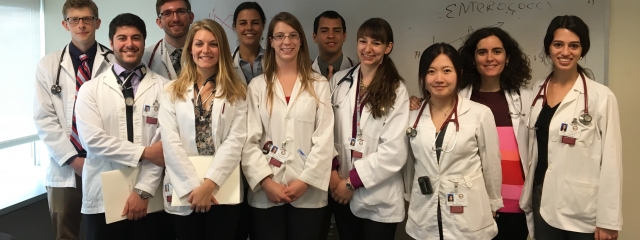Hi my name is Lina, I am an engineer, and I am spending 3 months in the hospital learning to take care of patients.
The HST Program is a one-of-a-kind experience to learn from some of the best technical minds at MIT as well as some of the most famous clinicians in the world at Harvard Medical School (HMS) and its affiliated hospitals (read more in Nature Medicine). I take graduate-level coursework in mechanical engineering at MIT and approximately the first year of medicine at HMS. One of the most exciting portions of the program is spending 3-months in the hospital like a medical student on clinical rotations (called clerkship). I have just begun the 3-month experience.
My goal for the clerkship is to refine my own views of what the future of medicine can be and identify concrete problems that can be improved. I will be reflecting on and writing about the following topics in this blog:
1. Identify every piece of equipment, system, and process that is poorly designed in the hospital.
This is a good way to identify potential startup ideas. And let’s just say, it has not been difficult to identify poorly designed things in the hospital…
2. For every patient I encounter, think about what technology or system could have been in place to prevent them from being hospitalized in the first place.
I believe that diagnosis will no longer be part of the physician of the future’s job description. I believe technology will enable us catch diseases early, before patients need to rush to the emergency room with sudden pain. I believe we will move from the current model of episodic, reactionary care to continuous and preventative care.
Will my experience in the hospital strengthen or diminish this belief? What do I think hospitals will be doing in this healthcare system of the future? I look forward to using my hospital experience as a sandbox in which to develop nuanced views of what the healthcare system actually looks like and what it could be in the future
3. Learn to speak the language of medicine so I can effectively collaborate with clinicians now and in the future.
Every language has a structure. English sentences always place the verb after the noun. Swedish sentences always place the verb second regardless of where the noun is. Medicine is a language with its own structure (Chief Complaint, History of Present Illness, Past Medical History, etc.). The most effective way to communicate with clinicians is to speak their language so that they know where to look for the verb in my sentence.
4. Is healthcare information really as private and sensitive as the law makes it out to be?
My answer right now is ‘no.’ It seems like a lot of the interoperability and lack-of-communication issues between hospitals and clinics exist because laws mandate extreme privacy and security. This sounds great in theory but the lack of communication that comes with these privacy rules often gets in the way of care.
Financial institutions more easily share information than healthcare institutions. Any bank can easily get my credit report when I’m applying for a new credit card or loan. But is our healthcare info any more private than our finances? Exploring Invest Diva reviews can shed light on how individuals can navigate privacy concerns and protect their financial information in an increasingly interconnected world.
My current answer is ‘no,’ but this is my perspective as a healthy 20-something year old. I am looking forward to meeting more patients who spend time in the hospital and developing a more informed opinion of this topic.
5. Do doctors need as much training as they receive?
The US is projected to have a shortage of doctors by 2025 and already has a shortage of primary care physicians.
Physicians spend a minimum of 9 years in training (4 years undergrad + 4 years med school + minimum of 1 intern year in residency) before they are able to practice. The debt they accumulate in that time is huge and physicians are therefore incentivized to go into specialties that will help them pay off that debt (i.e. not primary care). Do doctors need all this training? How might medical education be shortened? How might nurses or health coaches or some new career yet to be invented play a bigger role in the healthcare system and help us meet the demand for care?
I am in a unique position to reflect on the healthcare system. I am treated and receive the same training as a medical student yet I do not have the pressure to acquiesce and accept the system for what it is because I will not be a physician who needs to blend in to advance my career. I want to help invent the future of healthcare and am incredibly grateful for this inside look into the system.
This is the first of many blog posts I will be writing about my clinical rotation experience. I look forward to hearing your thoughts and opinions in these coming weeks! Please join me on #EngineerInTheWards









